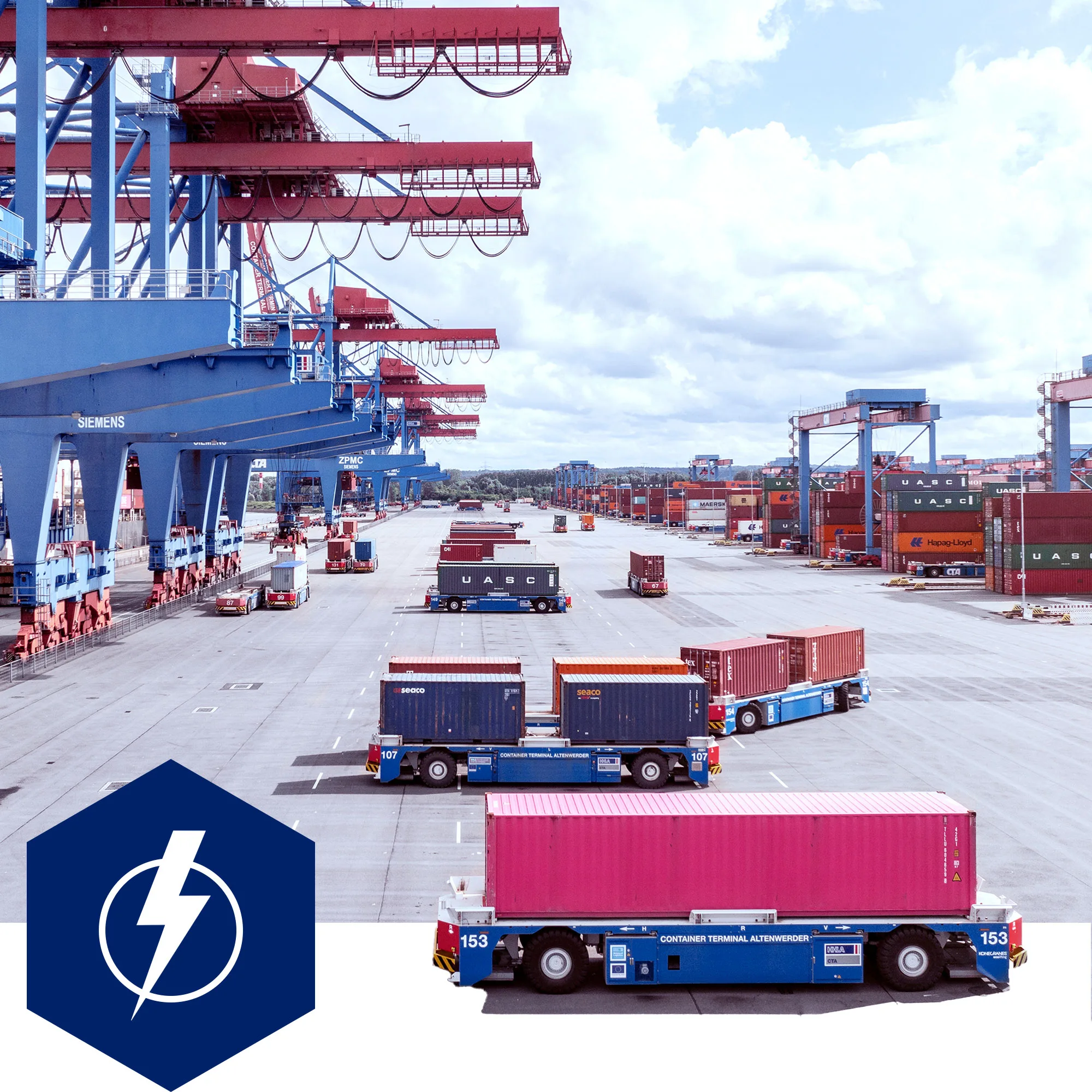Test fields

Container Terminal Tollerort CTT
Energy Carrier: Hydrogen
Equipment: Terminal Tractor, Empty Container Handler, Straddle Carrier, Forklift

Container Terminal Altenwerder CTA
Energy Carrier: Electricity
Equipment: Terminal Tractor, AGV
Simulation
In collaboration with the Technical University of Hamburg (TUHH), we are modeling and simulating logistics areas in which heavy goods transport operations take place. Our aim is to identify ways to decarbonize transport. This includes assessing energy requirements and developing strategies for the use of hydrogen and electricity. We also integrate real data from our test fields into these models, creating a solid decision-making framework for companies considering the use of such technologies in their daily operations.
Working groups
The cluster consists of eight working groups: Four groups deal with device-specific aspects that are crucial for the operation of zero-emission drive systems, while three site-specific working groups focus on methods of reliable energy supply and possible changes in the design of future zero-emission systems. At a higher level, another group is investigating the necessary framework conditions of cities and ecosystems for the climate-friendly operation of these systems and devices.

Ecosystem focus
Within the working group WG1 Logistics Ecosystems, the focus lies on addressing pivotal questions: What essential framework conditions are necessary to facilitate a large-scale transition to decarbonized areas? This includes a concentration on entire agglomerations of sites and the formulation of political proposals.
Site-specific focus
When choosing a technology, it is crucial to consider not just the device’s availability and performance but also whether the necessary energy can be supplied. For instance, WG2 Energy Supply and WG3 Layout address pivotal questions: Can the grid provide the needed amounts of green electricity for a fleet of battery electric vehicles at certain use cases? How must a supply chains be designed and operated to ensure the operation of a hydrogen-powered fleet of heavy-duty equipment?
How will the technological transition affect operations and fleet sizes? Moreover, how will the logistics area’s layout change in case of a switch? These findings will be consolidated in WG4: Comparison of Alternative Powertrain Technologies.
Device-specific focus
What are the required maintenance intervals for fuel cells or batteries? What training and instructions are necessary for employees to operate and maintain these devices? And can these devices achieve the same level of productivity as their fossil counterparts? These are some of the questions addressed by working groups five to eight. Each focussing on the corresponding modality: WG5 Terminal, WG6 Road, WG7 Rail and WG8 Water.
